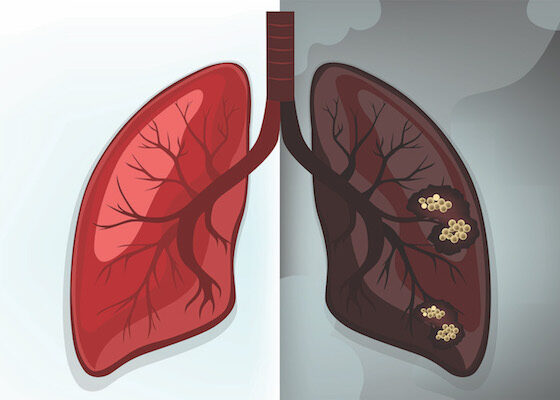Researchers have developed a machine learning (ML) algorithm that can be used to rank the effectiveness of different drugs in reducing cancer cell growth for individual patients. In Nature Communications (25 March 2021), the UK investigators report the feasibility of their new Drug Ranking Using Machine Learning (DRUML) technology, which predicted drug responses in independent verification data sets with low error. The new approach, they claim, offers the potential to be a game changer using predictive algorithms for truly personalised cancer treatments.
Biomarker testing and next-generation sequencing (NGS) are becoming more widely used in routine practice to identify genetic markers predicting patient response to targeted agents. However, the approach fails to take into consideration the complexity of the cancer biological landscape, where multiple biochemical pathways can compensate for each other. “The limitation of companion diagnostics is that they only measure the activity of one pathway at a time, and don’t tell you when there’s a compensatory pathway present,” explains Pedro Rodriguez Cutillas, who led the study. Compensatory mechanisms, he adds, explain why targeted therapies do not work in all cancer patients carrying mutations. In melanoma, for example, it is estimated BRAF inhibitors only work in around half of patients with BRAF mutations. “Machine learning can be used to overcome these issues by constructing algorithms that consider not just one molecular marker but several different markers, and can take into account the activity of the different pathways, allowing you to rank efficacy of different agents,” explains Cutillas, from Barts Cancer Institute (BCI), Queen Mary University of London, UK.
First, to build the DRUML model, Cutillas and his team used datasets derived from proteomics (the study of proteins in cells) and phosphoproteomics (the study of how these proteins are modified) using 26 acute myeloid leukaemia, 10 oesophagus and 12 hepatocellular cell lines. For the model they incorporated data on 8000 different proteins and 20,000 different phosphorylation sites from cell lines correlating with whether 412 different drugs (both chemotherapy and targeted agents) were found to be effective or resistant. “The significance of incorporating information on phosphorylation is phosphorylated proteins tend to be more active, helping the model identify the most active pathways that would benefit a particular patient most from being blocked,” explains Cutillas.
Having constructed the algorithm, the investigators were then able to input individual patient data containing information on baseline proteomics and phosphoproteomics, leading to an output of lists ranking the 412 drugs according to antiproliferative efficacy for a given patient.
The team obtained data for 53 different cancer cell models, that had been analysed by independent laboratories, which they fed into their DRUML model. Using the model, the predicted rankings were compared with the actual rankings found when samples were exposed to the 412 different drugs. Results showed 85 % of their predictions were within 15% error and the drug rankings were statistically significant (by Spearman) within all cancer models tested. “This represents a remarkable and surprising accuracy given that DRUML was trained using oesophageal and liver cancers, whereas the verification datasets consisted of data from cell lines derived from bone, brain, breast, cervix, colorectal, ovary and prostate cancers,” write the authors.
The team are currently in discussions with commercial partners to develop the technology further, and hope to undertake a clinical trial validating the approach. The trial, explains Cutillas, would involve comparing overall survival of patients matched to drugs using the algorithm with those matched using conventional methods. Taking DRUML technology a step further, adds Cutillas, it could be possible to incorporate data on surrounding non-cancerous cells from individual patients into the model. “This would provide insights on side effects and the drugs’ therapeutic windows (the difference between drugs’ ability to kill cancer cells relative to normal cells) that could be used to further help prioritise drugs for individual patients,” he explains.












